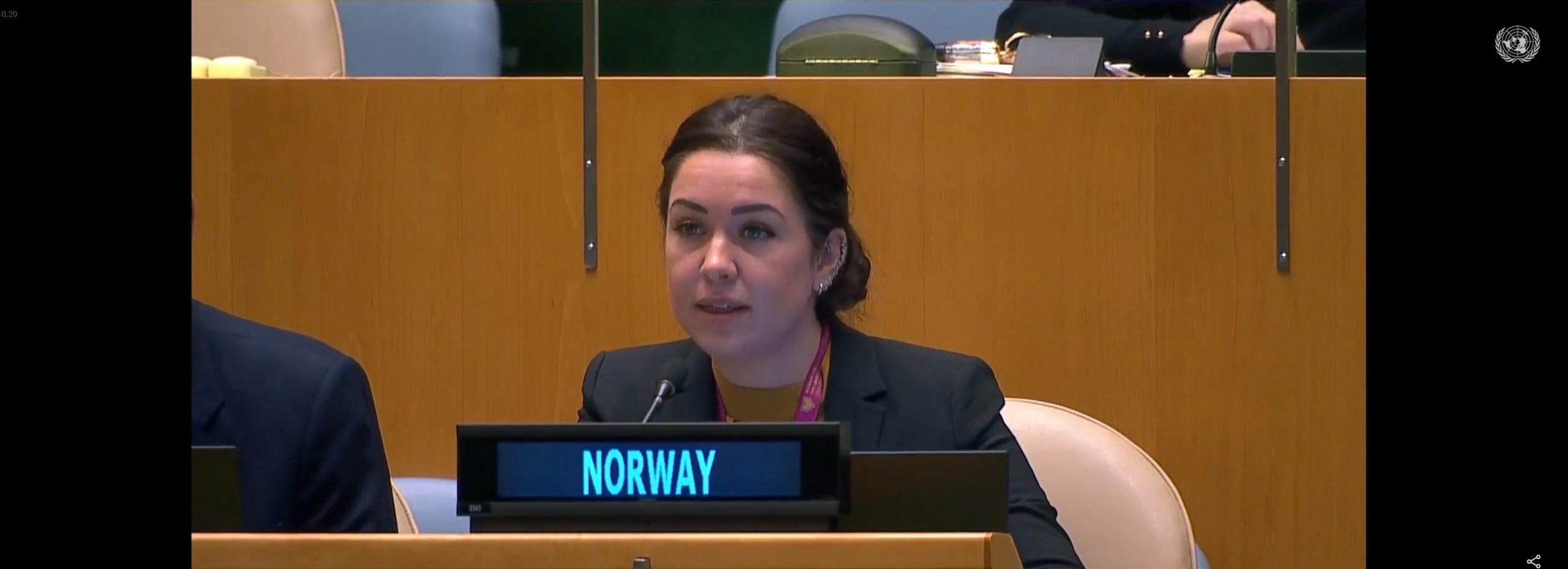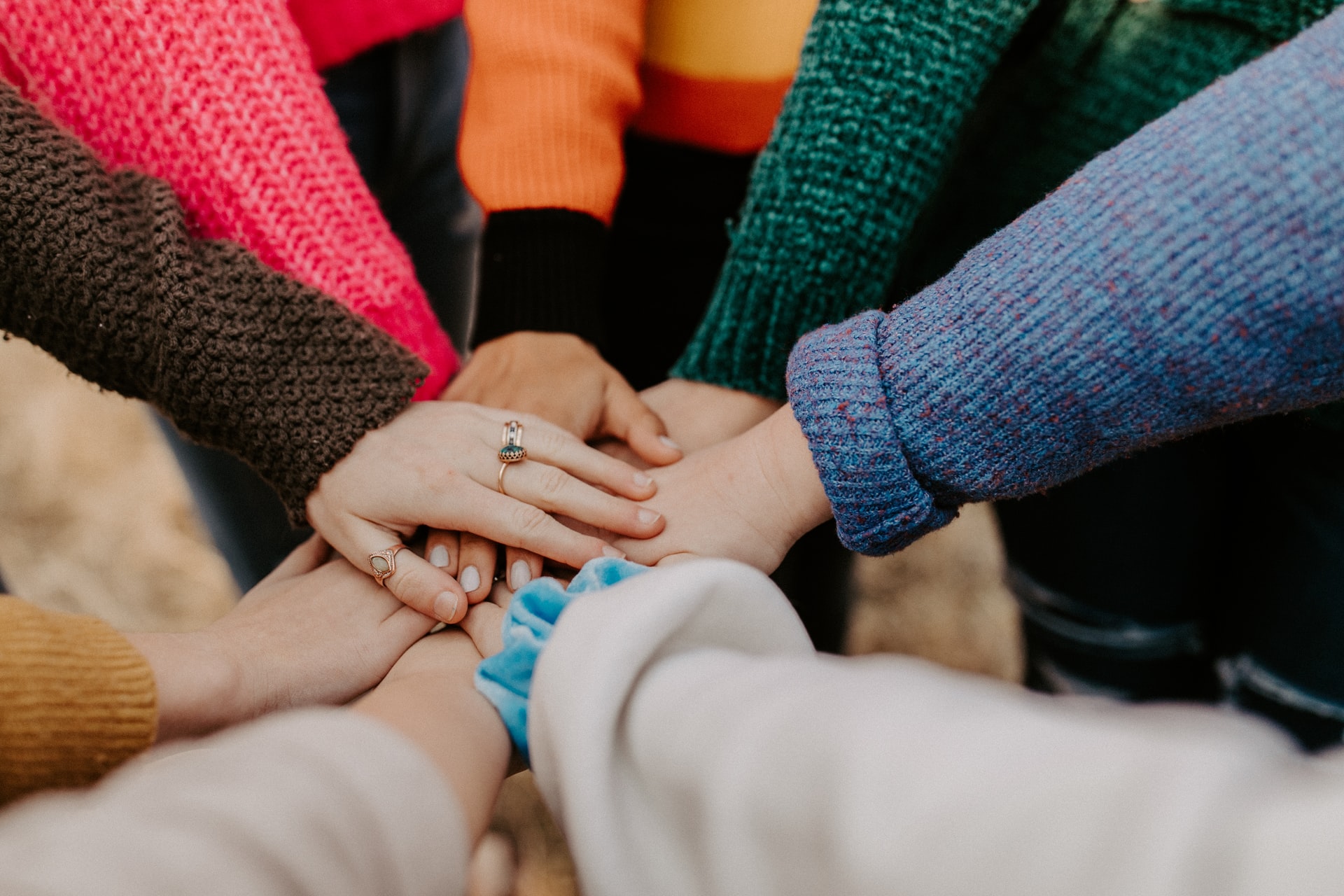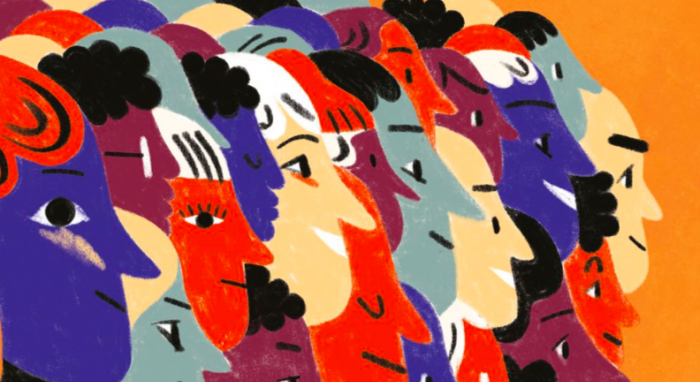It’s four years since Harvard professor Kathyrn Sikkink published ‘Evidence for Hope’. It’s an important book, empirically demonstrating that human rights work and that the arc of history does, indeed, bend towards justice as Dr Martin Luther King Jr opined some 50 years earlier.
A worsening climate crisis, a global pandemic that has exposed and exacerbated inequalities, and the persistence and rise of authoritarianism, among other threats, have challenged that trajectory in recent years, although Dr King knew as well as anyone that positive human rights change is not linear and only ‘comes through continuous struggle’.
Futures and strategic foresight thinking encourage us to identify small ‘signals of change’ which might help us to identify and influence the futures that come to pass.
At ISHR we’ve identified and, together with advocates and activists from around the world, helped contribute to a number of small signals of change in recent weeks which may indeed provide ‘evidence for hope’ that the arc of history continues to bend towards human rights and justice.
Environmental justice
Recognition of a legal right can help empower communities and peoples to claim that right and ensure that governments and non-state actors respect the right and are held accountable for violations and abuses.
The UN Human Rights Council’s landmark recognition of the right to a clean, healthy and sustainable environment is a critical step in this direction. Thanks to the coordinated advocacy and campaigning of over 1300 civil society organisations – together with the principled leadership of the governments of Costa Rica, Maldives, Morocco, Slovenia and Switzerland – the world’s peak multilateral human rights body has forged a powerful new tool to help safeguard nature and prevent environmental destruction.
Complementing its recognition of the right to a healthy environment, the Council’s just concluded 48th session also established a new position of Special Rapporteur on Climate Change. The mandate will provide expert advice to governments and help hold them accountable for their obligations to uphold human rights and address the climate crisis.
Consistent with ISHR advocacy, both HRC resolutions recognise the vital role of human rights defenders in environmental protection and sustainable development, as well as the obligations of states and business actors to protect and respect their work.
As the authoritative interpreters of international human rights obligations, the UN treaty bodies have also given their own signals of change towards environmental justice in the last week. In a widely reported decision, the Child Rights Committee ruled that states may be legally liable for the negative effects of carbon emissions on children, both within their borders and extra-territorially. The Human Rights Committee, meanwhile, has just ruled that for indigenous peoples the right to freedom from arbitrary interference with ‘home’ includes a right to be protected from the destruction or contamination of their territories or traditional lands.
And if all of that is not enough to signal an increasing recognition that environmental rights are human rights and that the future belongs to the defenders and not the polluters, then 11 year old drumming sensation and climate activist Nandi Bushell is sure to make the message heard!
Their voices will be heard
Nandi’s refrain that ‘our voices will be heard’ is a powerful summation of our mission at ISHR; we work to ensure that international bodies and processes are accessible and responsive to human rights defenders and that they have the tools, resources and networks necessary to tell their own stories and articulate their own demands.
At the just concluded session of the Human Rights Council in Geneva, we were privileged to support defenders from the United Kingdom to demand an end to systemic racism in policing, defenders from Niger to call for respect for freedom of expression online and offline, and partners from Mozambique, the DRC and Namibia to call for enhanced protection for defenders of women’s rights and LGBTQ rights.
Addressing the Council directly using the platform provided by ISHR, Alphonsus Gbanie of Sierra Leone demanded accountability for the killing of environmental defenders, Denis Ndayishemeza from Burundi called for an end to the arbitrary detention, enforced disappearance and extrajudicial killing of defenders, Meudy Osio – the widow of Venezuelan defender Fernando Alban – articulated her demands for justice, and Abdullah al Jureiwi implored the Council to establish an international monitoring mechanism on Saudi Arabia.
Ending reprisals
While we were privileged to work with each of these defenders to deliver their own statements in ISHR’s name, there are some defenders for whom speaking out publicly or cooperating with the UN may expose them to acts of intimidation or reprisal.
Such acts, together with the efforts of states like the United Arab Emirates to use sporting and cultural events to whitewash their dirty human rights records, paradoxically demonstrate that most governments care about their reputation and are susceptible to sustained public advocacy and pressure. Our recent landmark study on 709 cases of reprisals over the period 2010-2020 provides a strong evidentiary basis for this conclusion. It finds that sustained public action from multiple actors is the intervention most likely to contribute to improved outcomes from the perspective of victims and rights holders.
In that regard, our campaign to #EndReprisals was a significant success, with the Human Rights Council adopting a resolution to condemn reprisals by consensus for the first time since 2009. Moreover, the resolution provides for the issue of reprisals to be formally discussed at the UN General Assembly in New York, building on increasingly successful efforts by the United Kingdom in that regard and increasing scrutiny and pressure on perpetrators. Small but significant signals of change.
Increased scrutiny of powerful states and authoritarian and repressive regimes
When Professor Sikkink published ‘Evidence for Hope’ four years ago, only the most optimistic advocate would have envisaged that in the ensuing years many of the so-called ‘untouchable states’ would have been the subject of resolutions or joint statements at the UN. Yet thanks to the vision and persistent advocacy of human rights defenders, together with the political leadership of a number of states, the last year alone has witnessed joint statements on the repression of civil society in Egypt, Russia and Saudi Arabia, as well as the establishment of an independent international expert mechanism to address systemic racism, including in the United States.
Following sustained advocacy from ISHR and partners, together with overwhelming evidence of crimes against humanity and other grave human rights violations in Xinjiang,the UN High Commissioner for Human Rights has finally committed to finalise and publish a report on ‘allegations of serious human rights violations in that region, with a view to making it public by the end of the year’. Taken together with China’s withdrawal of a draft resolution which could have undermined universal human rights norms due to a lack of support from other states, it’s another small signal of positive change and an awakening to the need to resist China’s undue influence on UN bodies and processes.
Positive human rights change is not inevitable, but nor is it impossible
Anti-apartheid activist and former South African Constitutional Court judge Albie Sachs is credited with saying that all revolutions are impossible, until they happen. Then they become inevitable.
The just concluded session of the Human Rights Council included its share of failures, not least the abject betrayal of the Yemeni people by all those governments that voted to end international monitoring and reporting on the world’s worst man-made humanitarian crisis. On balance, however, the signals of change may be some portent of a more hopeful human rights future. And while this future is far from inevitable, it is by supporting and acting in solidarity with human rights defenders that we can best contribute to making it a reality.
Phil Lynch
Director
International Service for Human Rights



